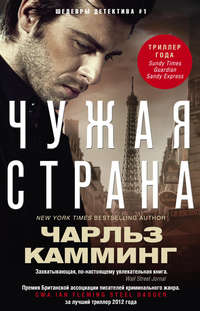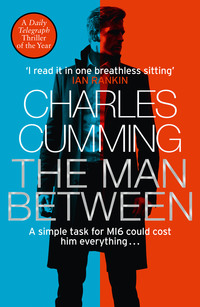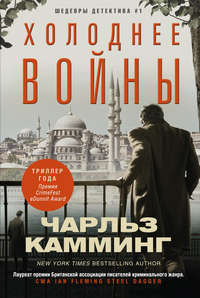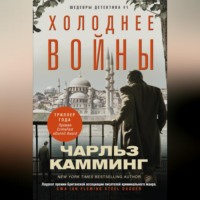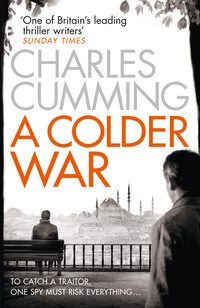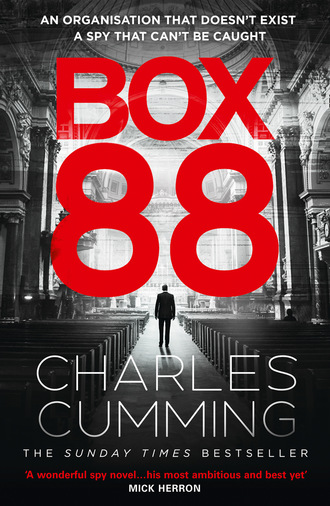
Box 88
‘I guess,’ Tomkins replied.
‘Thank you, Matthew. Always nice to chat.’
She hung up. Kite was heading back into the church. It was time to make her move.
‘Do you have time to talk?’ Fariba asked.
Kite was keen to learn about Paris. It was obvious that Fariba knew something of Xavier’s state of mind in the hours leading up to his death. He looked at his phone. It was not yet half-past twelve. He wasn’t due at the gallery until four.
‘Or we can do it another time,’ Fariba suggested, misinterpreting Kite’s reaction. ‘You may not feel like talking today. We are all still in shock.’
‘No, it sounds like a good idea. I’d appreciate that. It would be helpful to find out what was going on. I hadn’t seen Xav for at least a year. If you could explain what he was going through …’
‘Of course.’ Fariba adjusted the sleeve of his jacket. His movements were clean and precise, as if life were a martial art he had taken years to perfect. ‘I can try to help as much as I can.’
Kite looked up to see Cosmo de Paul scuttling away from the funeral, hailing a cab which did a U-turn opposite Smallbone of Devizes. Doubtless he had lunch at White’s in the diary or a pressing engagement with a Russian woman half his age charging £300 per hour. Looking back along Brompton Road, Kite saw the woman in the long black coat standing alone outside the enclosure. She was talking on the phone. There was something about her that didn’t sit well. For thirty years Kite had been at risk from surveillance and his antennae were finely tuned. It was possible that a team had been put on him at the funeral.
‘You have a family?’ Fariba asked.
‘One on the way,’ Kite replied.
‘Wonderful. Congratulations.’
‘And you?’
Fariba held up his right hand and showed Kite four splayed fingers.
‘Jesus. You’ve been busy.’
‘Not me. My wife does all the hard work. When is your child due?’
‘Late summer.’
Kite had forgotten to put money in the collection and explained that he was going back inside. While there, he looked quickly at Facebook on his phone and searched for Xavier’s profile. Jahan Fariba’s photograph came up as one of Xavier’s contacts. He put a twenty-pound note in the collection box and went back outside.
To his surprise, the woman in the long black overcoat was waiting for him on the steps.
‘Excuse me. It’s been driving me mad,’ she said. ‘Have we met before?’
She removed her sunglasses. Kite ran her features – soft brown eyes, a button nose, peroxide blonde hair and a wide, singer’s mouth – through a memory palace of names and faces, but turned up nothing.
‘I don’t think so,’ he replied. ‘Did we meet through Xav?’
‘No. Definitely not.’ The woman stared at Kite intently. ‘I’m Emma,’ she said, offering a hand to shake. Her skin was soft and cold to the touch. ‘It’s the weirdest thing. Your face is so familiar.’
If she was a friend or colleague of de Paul’s, it was possible she knew of him by reputation, but Kite didn’t want to establish the link.
‘I know!’ she said, suddenly remembering. Her face was overcome with relief. ‘I was working for one of the galleries at Frieze. You came in and chatted to my colleague. I think you were interested in buying something.’
‘Really? What a good memory you have.’
‘Never lets me down,’ she said, tapping the side of her head. ‘I just couldn’t place you.’
She had a sharp south-eastern accent, London or Essex or Kent. The fact that she had made no effort to soften its edges made Kite think that she wasn’t interested in blending into Xavier’s rarefied world. She was dressed like a model or fashion designer but, on closer inspection, the coat and black leather boots were off-the-peg.
‘Which gallery were you working for?’ he asked.
‘Karoo,’ she replied. ‘Based in New York. We were mostly displaying Sarah Lucas, Gavin Turk, Marc Quinn.’
That was all Kite needed to know that ‘Emma’ was not who she was pretending to be. In thirty years of collecting and selling paintings, he had never had a conversation with a New York gallerist about Sarah Lucas, Gavin Turk or Marc Quinn. Several collectors he knew had piled into the Cool Britannia crowd in the 1990s and made small fortunes as a result, but to Kite a lot of the work by the Young British Artists of that period was soulless Groucho bullshit. For the second time in less than half an hour he was obliged to set a trap for a stranger.
‘Are you sure that was at Frieze?’ he said as though still searching the recesses of his mind for some distant recollection of the encounter.
‘Yeah,’ she said. ‘Frieze.’
Whoever Emma was, she hadn’t done her homework. Karoo would have been selling Turks and Quinns at ‘Frieze Masters’, a parallel exhibition dedicated to older works of art located in a separate area of Regent’s Park. So who was she and what was she trying to achieve by speaking to him?
‘Well, it’s amazing you remembered,’ he said. ‘I don’t think I ended up buying anything last year. Are you still in that world?’
‘Nah. It was a temp job. Didn’t fancy making it permanent. Didn’t do it for me.’
‘I see.’ In his peripheral vision, Kite could see Fariba waiting for their conversation to finish. ‘Look, I’m going to be rude and take off,’ he said. ‘I’m sorry we can’t chat more, but I’ve got a meeting to go to.’
The woman looked crestfallen. ‘Oh. OK.’
‘Do you have a card?’
‘Me?’ she said. ‘Afraid not.’ Looking up hopefully, she added: ‘You?’
Kite was carrying a business card in his own name with an address, email and phone number which would flag as soon as anyone tried to use them. By sunset BOX 88 would know exactly who Emma was working for.
‘Lachlan,’ she said, holding the card in both hands. She pronounced the name in the correct way, making ‘Lach’ sound like ‘Lock’, and bowed slightly as she studied the text. ‘Well, at least I had the right person.’
‘You did,’ Kite replied with false enthusiasm. ‘I’m really sorry, but you’ve caught me at a bad time. Thanks for coming over. I wish I had your memory for faces.’
He walked back towards Fariba, trying to assess what was going on. If MI5 were investigating BOX 88, Xavier’s funeral would be a natural place to mount a surveillance operation against him and to make a pitch using a friendly young woman. Kite was bound to attend the service; they could set everything up in advance. But why the clumsy approach? It was possible that ‘Emma’ was private sector, working on behalf of a client who had taken an interest in him for reasons that were not yet clear.
‘Are you OK to go now?’ Fariba asked.
‘Sure.’
‘I hope you don’t mind, but I took the liberty of booking us a table at Theo Randall’s restaurant in the Intercontinental Hotel. You may know it. It’s discreet and the food is very good.’
‘I know it well.’ The Intercontinental was on the north-eastern side of Hyde Park Corner, close to a safe house on Hertford Street that BOX 88 had been renting for the past two years. ‘Took my wife there for her birthday,’ he said. ‘Shall we get a cab?’
‘I have a driver,’ Fariba replied with the nonchalance of the super-rich. ‘He’s waiting around the corner. I can meet you there if you want to walk? Otherwise he can take us whenever you’re ready.’
Matt Tomkins had seen the whole thing: Cara’s chat on the steps of the church; what looked like an exchange of business cards with the target; then BIRD walking off with his businessman friend towards a silver Jaguar XJ parked illegally on Egerton Place. There was a chauffeur at the wheel, working the hazard lights, but nobody had got close enough to take a picture of him. Tessa Swinburn had passed the number plate to Vosse, who was running it through the database at Thames House. Tessa had come on a moped with the intention of following the Jag while Kieran Dean tailed in the Astra.
‘What happened?’ Tomkins asked as Cara joined him outside South Kensington station. She had covered the short distance from the Oratory on foot and looked flushed with success in a way that irritated him.
‘I got his details,’ she said, producing Kite’s card from the pocket of her overcoat.
‘We already have his details,’ Tomkins replied tartly.
‘Not these ones.’ She made him look closer. ‘The mobile is different. And the email. Cheltenham attacks those, we might get somewhere.’
Tomkins was forced to concede that Cara had made a breakthrough. He experienced a surge of resentment, sharp as bile. It was not enough that he should be regarded by Vosse as the most capable member of the team; others, particularly Cara, had to fail.
‘So what are you going to do?’ he said. ‘Call him?’
‘Dunno,’ she replied. ‘Need to talk it over with Robert.’
‘Robert.’ Not ‘Mr Vosse’ or ‘the boss’. Tomkins wondered if they had a friendship outside of work. Maybe they went for drinks in the pub or tapas and talked about him behind his back. Maybe they were sleeping together. That kind of thing happened all the time at Thames House.
‘He’ll tell you to go for it,’ he said.
‘Might do. Might not.’
Tomkins’s phone started to ring. Speak of the devil. It was Vosse.
‘Cagney?’
‘Cagney’ was Tomkins’s codename. Cara was ‘Lacey’.
‘Yes, sir.’
‘Did you see the driver of the Jag?’
‘No, sir.’
‘You with Lacey?’
‘Yes, sir.’
‘Ask her if she got a look at him.’
Matt lowered the phone and asked Cara what she’d seen. A woman was screaming at her infant son outside a branch of Five Guys and it was difficult to make himself heard.
‘She didn’t see him,’ he told Vosse. ‘Why? What’s going on?’
‘What about the bloke who walked off with our man? You said he was from the Middle East?’
‘I didn’t say that,’ Tomkins replied. ‘Lacey did.’
Cara scrunched up her face, trying to work out what the two men were discussing.
‘Fine. Lacey said it.’ Tomkins could hear the irritation in Vosse’s voice. ‘What did you think? Was he likely from that neck of the woods?’
‘Yes, sir,’ Tomkins replied.
‘And it looked like they’d never met before but were getting along famously?’
That was an accurate characterisation of what Cara had told Tomkins, so he said: ‘Yeah, that’s right,’ and waited to find out why Vosse was sounding so agitated.
‘There’s just something that doesn’t ring true.’
‘What’s that, sir?’
‘This guy’s wearing a flash watch and walks around in thousand-pound shoes, right? According to Villanelle, there was a chauffeur in the driving seat of the Jaguar.’
‘Yes, sir.’
‘So explain this: why was the Jag rented from Europcar two days ago?’
4
The chauffeur was wearing a cheap black suit and a peaked cap. He opened the back door for Kite but did not acknowledge him. Kite took a last look up at the red-brick mansion blocks of Egerton Gardens and climbed inside, checking the windows and mirrors for moving vehicles. Sure enough, a dark blue Vauxhall Astra pulled out behind them as the driver moved away. Fariba had settled in beside him and was fastening his seat belt. Kite turned and reached for his own, taking the opportunity to look behind the Jaguar and commit the Astra’s number plate to memory.
‘Did you know that Edward Elgar was married at the Brompton Oratory?’ Fariba asked.
‘I didn’t.’
‘Also the racing driver James Hunt. And Alfred Hitchcock.’
‘Wikipedia?’ Kite asked.
Fariba laughed. ‘Yes! How did you know?’
Kite assumed the question was rhetorical and sat back in his seat, wondering where the surveillance was coming from. It had been a feature of his long career that minor setbacks never troubled him very much; if anything, they got his blood moving a little quicker. But a tailing Astra and a clumsy approach from a charming, if inexperienced woman at the funeral still required attention. If the heat was coming from MI5, Kite needed to tread carefully; if he was being looked at by amateurs in the private sector, he would put a surveillance team of BOX 88 ‘Falcons’ onto them that afternoon and find out who was paying their bills.
‘Do you have a favourite Hitchcock film, Lachlan?’ Fariba asked.
Kite wasn’t much of a movie buff but said Vertigo because it was the first title that came to mind. He thought of James Stewart falling from the top of a high building and pondered the change in Fariba’s mood. On the steps of the church he had been polite to the point of deference; now, spread out in the back seat of his executive limo, he had relaxed into the role of international plutocrat, making empty chit-chat as his valeted Jag slipped through the Knightsbridge traffic.
‘One of my favourites too,’ he said. ‘I’m glad we agree.’
Kite checked his mobile. He had sent a message on WhatsApp to Isobel but she had not yet seen it. He sent another – Very sad service. Heading off for lunch with a friend of Xavier’s. See you tonight. Love you – and put the phone back in his jacket. One of the mourners was crossing the road opposite Harrods. Kite recognised him as Rupert Howell, a sports jock nicknamed ‘Lazenby’ at Alford on account of his saturnine good looks and jaw-dropping success with women. His hairline had since receded at such a rate that, from a distance, he looked like the elderly John Profumo.
‘Something else I learned from Wikipedia,’ said Fariba.
‘What was that?’ Kite asked, turning to face him. He looked briefly in the rear-view mirror but could no longer see the Astra.
‘During the Cold War, the KGB used to leave dead drops in the entrance to the Brompton Oratory.’
Kite knew the story but played dumb. He wondered why a man like Fariba would use the term ‘dead drop’ without going to the trouble of explaining it.
‘Really? I had no idea the Oratory was such an interesting place.’
‘Neither did I. Neither did I.’
The mood wasn’t right. Was it nerves or something more sinister? Perhaps Fariba was anxious about their imminent chat over lunch.
‘Where are you from?’ Kite asked the driver.
‘He doesn’t speak English,’ Fariba replied quickly.
The chauffeur responded in a language Kite identified as Farsi, using a word – ‘jakesh’ – which had been a favourite of an Iranian colleague who had done some work for BOX 88. It struck him as odd that a chauffeur would employ such a word – which translated roughly as ‘pimp’ – in a conversation with his boss and wondered at the context.
‘Where’s he from?’ he asked.
‘Isfahan,’ Fariba replied.
‘Just arrived?’
‘No. He has lived in London for many years.’
Was it Kite’s imagination, or did Fariba’s answers seem strained? To work for BOX 88 was to live in a more or less permanent state of low-level paranoia; Kite had grown used to it in the way that a diabetic becomes accustomed to injecting himself with insulin four times a day. He was wary of Fariba just as he had been wary of the woman in the long black overcoat. Something was wrong.
The Jaguar passed through a canyon of construction work on the western approach to Hyde Park Corner. To the north, repairs were continuing to the Mandarin Oriental Hotel, gutted by fire and now rising again over Knightsbridge; to the south, the narrow facade of a nineteenth-century apartment block had been preserved behind thick steel scaffolding. The building behind it had been torn down. In its place, a steel-and-glass tower, doubtless financed by Chinese, Russian or Gulf money, was gradually being craned into the sky.
‘What house were you in at Alford?’ Kite asked.
‘ACDP,’ Fariba replied.
Housemasters at Alford were known by their initials, not surnames. Kite remembered ACDP and the location of the house, tucked away towards the back of the school close to a wooded area where boys would go to smoke Silk Cuts and look at copies of Penthouse and Razzle.
‘Where was that? Close to my house?’
Fariba hesitated. ‘Which one were you in?’ he asked. ‘Remind me.’
‘Lionel Jones-Lewis.’
‘The maths teacher?’
‘Yes. The maths teacher.’
It was an odd, but not inaccurate way of describing Jones-Lewis – more commonly remembered by old Alfordians as ‘Jumpy’ – a bachelor housemaster who had somehow managed to avoid being fired despite three decades of predatory behaviour towards the boys in his care.
‘Look at the arch. So beautiful at this time of year.’
The Jaguar was circling Hyde Park Corner. The Wellington Arch at the centre of the vast roundabout looked no more or less impressive than it usually did.
‘Yes, it is very beautiful.’ Kite knew that Fariba was trying to change the subject, so he pressed his point. ‘We were almost side by side. LJL was down by the music schools, next to ACDP. We probably passed one another in the street every day.’
‘I don’t know,’ Fariba replied. ‘I think you and Xavier had left by the time I went to Alford.’
Neither of the two houses Kite had mentioned were situated anywhere near the music schools. Either Fariba wasn’t concentrating on what Kite was saying or he was lying.
‘Your tutor. Who were you up to?’
Kite had again employed arcane language specific to the school which only an old Alfordian would recognise. Fariba visibly faltered before answering, like a sudden and unexpected glitch in a well-oiled machine.
‘Tutor?’ he said. ‘Are you one of those English public schoolboys who likes to talk about Alford all the time, Lachlan?’ He took out his mobile phone and waved Kite’s questions away as he began to tap out a message. ‘The truth is, I don’t remember. It was all so long ago. Do you want to know my date of birth? My mother’s maiden name?’
They were passing the Intercontinental, the driver indicating into the left lane as a motorbike overtook him on the opposite side. Like the itch at the back of the throat which foretells a period of sickness, Kite knew that he was in grave danger.
‘Could you pull over for a second?’ he said.
‘But we’re almost there.’
The driver turned off Piccadilly onto Old Park Lane, passing the Hard Rock Cafe. He spoke to Fariba in Farsi. Fariba gave a clipped, aggressive reply. Kite could feel their apprehension as the Jaguar passed the Playboy Casino and made an immediate right turn onto Cheshire Street. Rather than looping back towards the Intercontinental, they were heading east, deeper into Mayfair.
‘You’re going in the wrong direction,’ Kite said as a car sounded its horn in the street behind him. ‘The restaurant is the other way.’
‘It’s quite all right, Lachlan.’ There was a forced nonchalance to Fariba’s reply. ‘We have a car park here that I prefer to use.’
Kite knew what was coming. It was an Iranian speciality. Fariba’s team would have control of the car park and would likely switch him to a second vehicle as soon as they’d stripped him of his clothes and mobile. Kite was intensely angry with himself for letting his guard down at the funeral but had no time to mourn his mistake. The chauffeur had turned off Cheshire Street and was heading towards a barrier at the entrance to an underground car park. A man in a dark suit raised the barrier then lowered it as soon as the Jaguar had passed. The car nosed down a steep ramp towards an ill-lit basement where two more men waited in the shadows. Kite knew that if he tried to open the back door it would be locked. So it proved.
He was cramped for space and had only seconds to make his move. Disconnecting his seat belt, Kite raised his hips so that his weight was pitched forward onto his legs. In the same movement he twisted quickly left, then right, using the momentum to slam his elbow into the side of Fariba’s throat. Fariba gasped as Kite struck him a second time, but he had not made a clean connection with the carotid artery. Speed was critical. Grabbing a fistful of Fariba’s hair, Kite now turned and drove his left knee up into the Iranian’s face, but the chauffeur hit the brakes at the moment of impact and Kite was unbalanced, managing only to slam Fariba’s head against the window as he fell backwards. With the Iranian momentarily dazed, Kite reached forward and grabbed a loose section of the driver’s seat belt, twisting it tightly around his neck in an effort to choke him. He had to get into the passenger seat and leave the car by the front door, taking his chances with the men outside. But his grip on the belt was poor and the driver tipped back his chair to loosen the strain on his neck, pulling at the joints on Kite’s hand so that he was forced to release the belt.
Fariba had now recovered. Calling out to the driver in Farsi he threw several punches into Kite’s kidneys and snatched at his trailing foot in an effort to restrain him. Kite kicked back, striking Fariba in the face, then pushed forward into the front section of the car, pulled sideways by the driver as he tried to reach for the passenger door. Leaning forward, Fariba put his arms around Kite’s waist and pulled him towards the back seat with astonishing strength. Kite freed his right hand and used it to gouge the driver’s eyes. He could feel the softness of the eyeballs beneath his fingers and pushed harder, the driver yelping like a wounded animal. Fariba saw what was happening and chopped down on Kite’s arm. The joint in his elbow screamed in pain. Then the door behind him opened and a third man entered the car. Fariba shouted at him as he slammed the door.
Kite was wedged between the two men and unable to move. The third man pinned his arms behind his back and seized Kite’s neck in a headlock. The driver straightened his seat and moved the Jaguar down the ramp, rubbing one eye and swearing under his breath. Kite thought of Isobel, of their unborn child. Whatever ordeal was planned for him, he could now do nothing to stop it.
‘What the fuck is going on?’ he said, struggling to break free of the headlock.
Fariba smiled, shaking off the adrenaline of the fight.
‘You did well,’ he said, nodding towards the driver who was still muttering in Farsi. He was a large man, ponderous and cruel, and Kite knew that he had made an enemy of him. ‘I thought everything was going so smoothly. Xavier said you were the best of the best.’
‘Fuck you,’ said Kite, fearing what his friend had told them.
Fariba exchanged a look with one of the men outside the car. He lowered the window and took a syringe from him, indicating to the man holding Kite that he should squeeze more tightly around his neck.
‘It will be best if you don’t kick out,’ he said, and immediately stabbed the needle through Kite’s suit trousers into the muscles of his right thigh.
Kite winced, feeling the needle almost at the bone, but the strength of the man’s hold on him was so great that he could make no meaningful sound.
‘I had such an interesting series of conversations with Xavier,’ said Fariba. ‘He told me all about the summer of 1989. All about Luc Bonnard and a woman named Martha Raine. Cast your mind back to that time, Lachlan. I need your memory. When you wake up, I want you to tell me everything you can about Ali Eskandarian.’
5
‘Just because he rents a Jag from Europcar doesn’t make him a terrorist. Doesn’t make him BOX 88 either.’
Matt Tomkins and Cara Jannaway had jumped into a taxi outside South Kensington station and were trying to catch up with Dean in the Astra. Vosse was coordinating the pursuit from Acton.
‘Maybe we should discuss this later,’ Cara replied, nodding in the direction of the driver.
‘Fair enough,’ said Tomkins, and checked his mobile for Dean and Swinburn’s positions.
Cara addressed the driver.
‘Excuse me? Could you head to the Mandarin Oriental at the top of Knightsbridge?’
‘What’s that, luv?’
The driver had one ear tuned to the traffic, the other to James O’Brien on LBC. He turned down the volume on the radio.
‘I said can we head towards the Mandarin Oriental Hotel just before Hyde Park Corner?’


